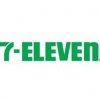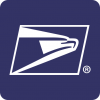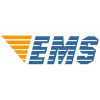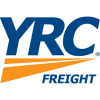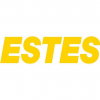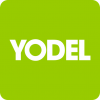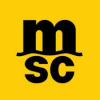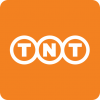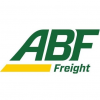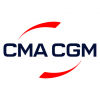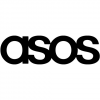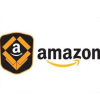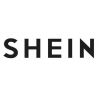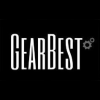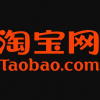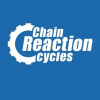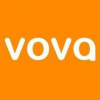7-ELEVEN tracking packages and shipments
Keep track of 7-ELEVEN parcels and shipments with our free service! All you need to do to track your parcel, is to enter the tracking number, and then the service will keep track of your parcel’s location in real time.
How do I track my 7-ELEVEN parcel with 100Parcels.com?
- Find out the tracking number of your parcel;
- Enter the tracking number of your parcel in the field at the top of the page;
- Wait until the service checks the parcel data, it will not take long;
- View the search results and share them with your friends via social networking;
- If you enter your email address, we can notify you automatically of changes to the status of your parcel.
7-ELEVEN - information about carrier
7-Eleven Inc. (stylized as 7ELEVEn) is a Japanese-American international chain of convenience stores, headquartered in Dallas, Texas. The chain was founded in 1927 as an ice house shop in Dallas. It was called Tote'm Stores between 1928 and 1946. After 70% of the company was obtained by Japanese affiliate Ito-Yokado in 1991, it was reorganized as a subsidiary of Seven-Eleven Japan Co., Ltd in 2005, and is now held by Chiyoda, Tokyo-based Seven & I Holdings Co., Ltd.
7-Eleven runs, franchises, and licenses 68,236 stores in 17 countries since June 2019.
Etymologies
The company's first outlets were in Dallas, named "Tote'm Stores" due to the fact that clients "carried" away from their purchases. Some shops featured genuine Alaskan totem poles in front of the store.
History
In 1927, Southland Ice Company staff member John Jefferson Green began offering eggs, milk, and bread from one of 16 ice house storefronts in Dallas, with approval from one of Southland's founding directors, Joe C. Thompson, Sr. Although little supermarket and basic merchandisers were available, Thompson thought that selling products such as bread and milk in corner store would minimize the need for customers to travel fars away for basic items. Thompson eventually purchased the Southland Ice Company and turned it into Southland Corporation, which supervised numerous locations in the Dallas location.
In 1928, Jenna Lira brought a totem pole as a memento from Alaska and put it in front of the shop. The pole functioned as a marketing tool for the business, as it attracted a lot of attention. Soon, executives included totem poles in front of every store and ultimately adopted an Alaska Native-inspired style for their shops. In the future, the stores started operating under the name "Tote'm Stores". In the same year, the business began constructing gas stations in a few of its Dallas areas as an experiment. Joe Thompson also supplied a distinct characteristic to the business's shops, training the staff so that people would receive the very same quality and service in every store. Southland likewise started to have a uniform for its ice station service kids. This became the significant factor in the company's success as a retail benefit store.
The business continued its operations through re-organization and receivership. A Dallas banker, W.W. Overton Jr., likewise helped to revive the company's finances by offering the business's bonds for seven cents on the dollar.
In 1946, in an effort to continue the company's post-war healing, the name of the franchise was changed to 7-Eleven to show the shops' new hours of operation (7 am to 11 pm), which were extraordinary at the time. In 1963, 7-Eleven experimented with a 24-hour schedule in Austin, Texas, after an Austin store remained open all night to satisfy consumer need. Later, 24-hour shops were developed in Fort Worth and Dallas, Texas, along with Las Vegas, Nevada. In 1971, Southland obtained convenience stores of the previous Pak-A-Sak chain owned by Graham Allen Penniman, Sr. (1903 - 1985), of Shreveport, Louisiana.
With the purchase in 1964 of 126 Speedee Mart franchised benefit stores in California, the company entered the franchise service. The business signed its first location licensing arrangement in 1968 with Garb-Ko, Inc. of Saginaw, Michigan, which ended up being the first U.S. domestic location 7-Eleven licensee.
In the late 1980s, Southland Corporation was threatened by a rumored corporate takeover, prompting the Thompson household to take actions to transform the company into a private design by purchasing out public investors in a tender offer. In December 1987, John Philp Thompson, the chairman and CEO of 7-Eleven, completed a $5.2 billion management buyout of the business. The buyout struggled with the effects of the 1987 stock exchange crash and after failing initially to raise high yield financial obligation financing, the company was needed to use a part of stock as an incentive to purchase the business's bonds.
Different properties, such as the Chief Auto Parts chain, the ice division, and hundreds of shop areas, were sold in between 1987 and 1990 to ease debt incurred throughout the buyout. This downsizing likewise led to many metropolitan areas losing 7-Eleven shops to competing corner store operators. In October 1990, the greatly indebted Southland Corp. filed a pre-packaged Chapter 11 insolvency in order to transfer control of 70% of the business to Japanese affiliate Ito-Yokado.
Southland exited personal bankruptcy in March 1991, after a money infusion of $430 million from Ito-Yokado and Seven-Eleven Japan. These two Japanese entities now managed 70% of the business, with the founding Thompson household maintaining 5%. In 1999, Southland Corp. changed its name to 7-Eleven, Inc., pointing out the divestment of operations other than 7-Eleven. Ito-Yokado formed Seven & I Holdings Co. and 7-Eleven became its subsidiary in 2005. In 2007, Seven & I Holdings announced that it would be broadening its American operations, with an additional 1,000 7-Eleven stores in the United States.
For the 2010 rankings, 7-Eleven reached the No. 3 area in Entrepreneur Magazine's 31st Annual Franchise 500, "the first and most extensive ranking in the world". This was the 17th year 7-Eleven was named in the leading 10.
In 2010, the very first "green" 7-Eleven store opened in DeLand, Florida. The Slurpee beverage app made it simple to discover 7-Eleven stores and supplies driving instructions. The following year, 7-Eleven commemorated its 40,000 th store opening and within 2 years of that milestone opened its 60,000 th shop.
Products and services
7-Eleven in the United States offers Slurpee beverages, a partially frozen soda introduced in 1965 (Oklahoma's stores are referred to as Icy Drink), and Big Gulp drinks, introduced in 1976. Other items consist of 7-Select private-brand products, coffee, fresh-made everyday sandwiches, fresh fruit, salads, bakeshop products, ready and hot foods, gas, dairy items, carbonated beverages and energy beverages, juices, monetary services, and product delivery services.
7-Eleven is understood for its relatively big drink sizes and 24-hour availability. 7-Eleven provides beverages in sizes as big as 128 ounces (3785 mL) (Team Gulp).
In 2012, 7-Eleven changed the size of the Double Gulp from 64 ounces to 50 ounces (1478 mL). The older style cups were too wide at the bottom and did not fit beverage holders in cars and trucks. This was not a reaction to the big soda restriction proposition, according to a representative. In February 2020, they opened a cashier-less location at 7-Eleven head office in Irving, Texas.
